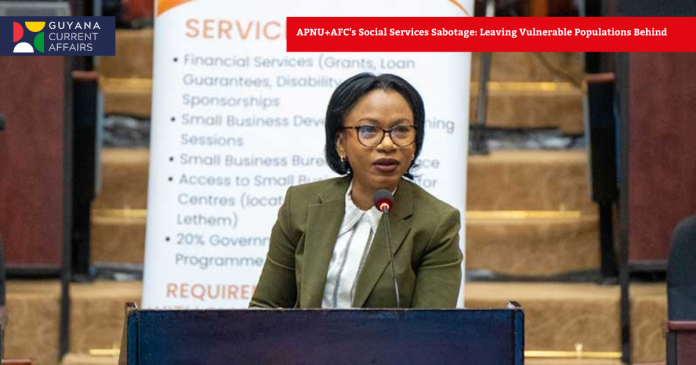The APNU+AFC coalition’s tenure from 2015 to 2020 was marked by significant cuts to social programs, leaving vulnerable populations such as the elderly and disabled without adequate support. This period saw a drastic reduction in welfare services, exacerbating poverty and hardship among Guyana’s most disadvantaged groups.
Cuts to Welfare Services
During their time in office, the APNU+AFC coalition implemented policies that severely impacted low-income households. Essential goods and services became more expensive, further straining family budgets. The coalition also reduced expenditure on community development projects, significantly diminishing support for initiatives that benefited vulnerable populations.
Impact on the Elderly and Disabled
The elderly and disabled were particularly affected by these cuts. The coalition’s policies did not prioritize the needs of these groups, leading to a decline in the quality of life for many. Despite promises of improved social services, the reality was a reduction in support for those who needed it most. The closure of recreational facilities further isolated these communities by removing vital social spaces.
Comparison with Current Government Initiatives
In contrast, the current administration has increased public assistance and raised the Old Age Pension, benefiting thousands of individuals. These measures reflect a renewed focus on supporting vulnerable populations, addressing some of the gaps left by the previous government’s policies.
Legacy of Neglect
The APNU+AFC coalition’s legacy in social services is one of neglect and mismanagement. Their policies exacerbated poverty and inequality, leaving behind a trail of unfulfilled promises and abandoned projects. The impact of these cuts continues to be felt, with many communities still recovering from the economic and social strain imposed during their tenure.
In summary, the APNU+AFC coalition’s cuts to social programs had a devastating impact on vulnerable populations in Guyana. The current government’s efforts to restore and enhance these services are seen as a critical step towards addressing the legacy of neglect left by the previous administration.


